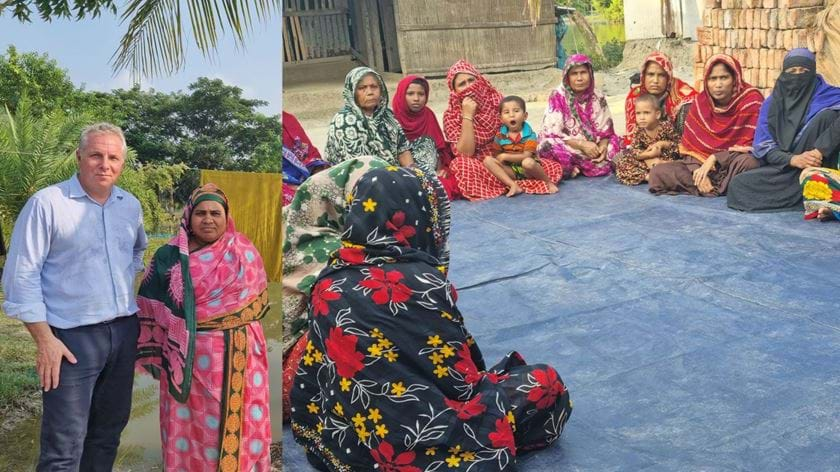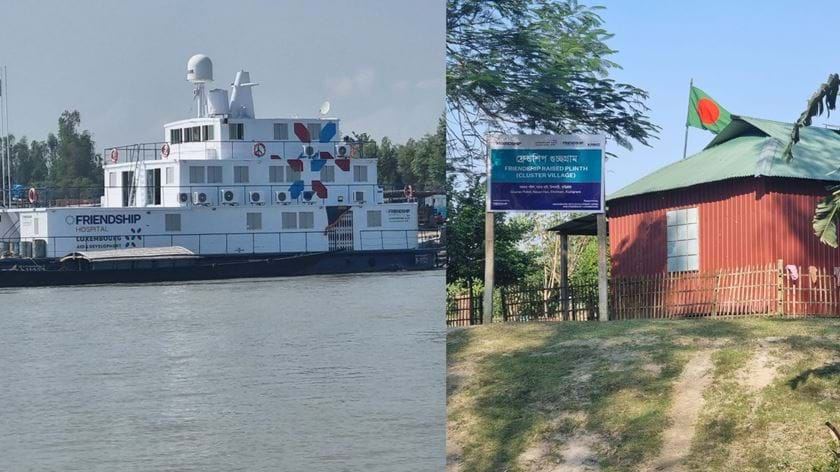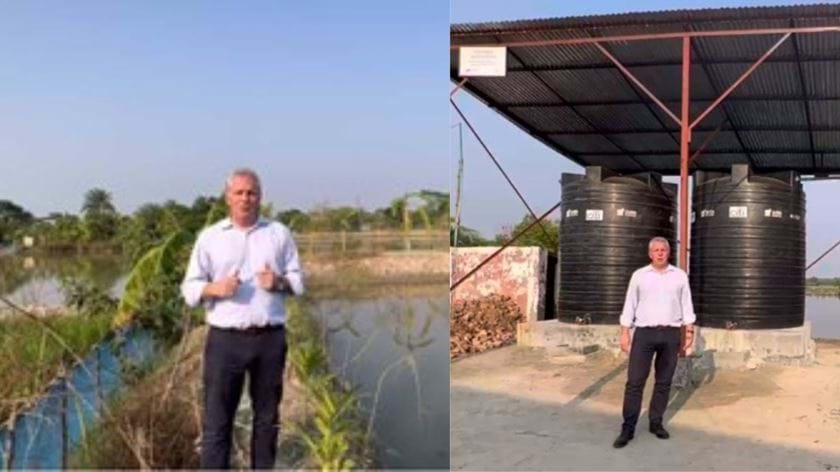Supporting innovation to mitigate the impacts of climate change on Bangladesh
The British Asian Trust has been working in Bangladesh since 2019. We have successfully led new mental health programmes in the country and supported refugees in Cox’s Bazaar. But one of the biggest threats affecting to the future of Bangladesh is climate change.
In Bangladesh, two-thirds of the population are dependent on agriculture, the impacts of climate change could be catastrophic, threatening national food security and livelihoods. Food and water security are just two of many issues the country has to contend with as it faces relentless and increasingly worse natural disasters.
So, when I recently travelled to Bangladesh, I was keen to explore the impacts of climate change as we consider how the British Asian Trust might take a stronger role in supporting locally led solutions.
I visited Gabura, which is globally known as ground zero for climate change. It is one of the hardest hit communities in the world – their survival is a constant struggle with cyclones, tidal upsurges and floods. I saw some innovative projects being led by one of our local partners, SAJIDA Foundation, which were supporting local communities to adapt and build resilience to climate changes.
Almost every year the river embankments are damaged and flooded. As the severity and frequency of natural disasters increases, floods and tidal surges mean most of the water is affected by salinity and there is limited drinking water, while homes and livelihoods are also affected.
SAJIDA Foundation showed me several projects being delivered that focused on different climate resilient farming and irrigation techniques. It was very powerful to see how small projects – from changing crops to storing rainwater and creating levees – can make a difference to people’s livelihoods and economic security when disaster strikes.
I also visited Kurigram in the north of the country to see projects being delivered by the NGO Friendship. River communities are constantly affected by rising water levels and flooding from natural disasters. Friendship have supported the communities to adapt and become more resilient to the impacts of climate change and it was an incredible learning experience for me to see this work and discuss it with local people. I also had the opportunity to visit the incredible floating hospital that Friendship runs – taking medical support to remote communities.
These small projects have not only changed lives but changed whole communities and their economic resilience.
Climate change is not a new issue for Bangladesh. Until mid 2022, Prime Minister Sheikh Hasina chaired the Climate Vulnerable Forum, an international partnership of countries highly vulnerable to a warming planet which represents the combined interests of 1.2 billion people. Bangladesh has also initiated a Climate Change Trust Fund and adopted the ‘Mujib Climate Prosperity Plan’ and the ‘Delta Plan 2100’ to tackle the challenges of climate change.
But the Prime Minister herself has said there is a long road ahead to achieving food and water security and special funds need to be created to support the agriculture sector.
Her calls are now being backed by others. A recent World Bank report suggested that without urgent action, including further adaptation and resilience measures, the country’s strong growth potential could be at risk (1).
And at the recent COP-27 conference in Egypt, one of the key questions focused on opportunities for accelerating finance to small scale and locally led climate adaptation projects.
We have spoken to many stakeholders in Bangladesh who resoundingly echoed the urgent need for greater investment in climate resilient agriculture.
In response, the British Asian Trust will soon launch an ambitious $1 million Climate Innovation Fund to invest in promising and successful approaches to climate-resilient agriculture in the country.
We will then work with local partners to find and support local solutions and then scale-up the most promising of these.
Our approach is very much locally led, and we believe local communities are best placed to know what will work, and what won’t.
Our hope is that this Fund will empower more people to explore innovative solutions, and to see these then be adapted at scale.
This is our chance to make a difference by lifting up others and empowering them to build their own resilience.
The challenge is now for the private sector and other funders to step up and do the same.
By Richard Hawkes, Chief Executive of the British Asian Trust. He travelled to Bangladesh in November 2022.



